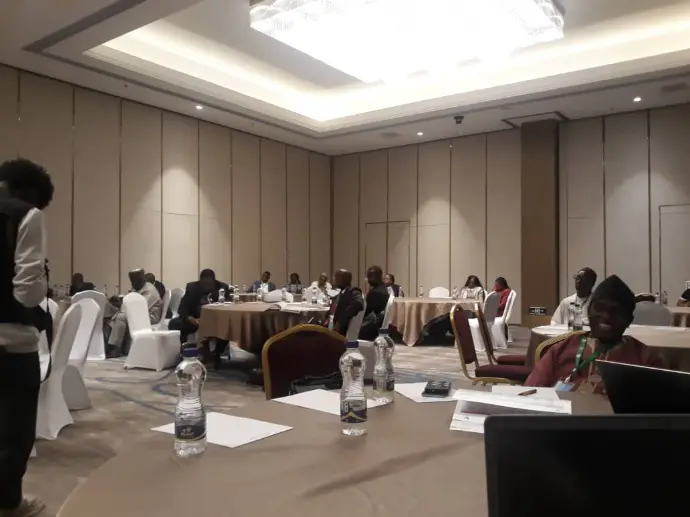EDITORIAL
Welcome to the first official day of the 41st Annual Conference of the Association for Educational Assessment in Africa (AEAA). Today marks the beginning of a five-day journey dedicated to redefining educational assessment on the continent. The day was filled with a sense of shared purpose and a vibrant atmosphere of collaboration, officially launched by prominent leaders from Ethiopia and beyond. We are honored to host delegates and partners from across Africa and the world, all united by the common goal of transforming education for a brighter future
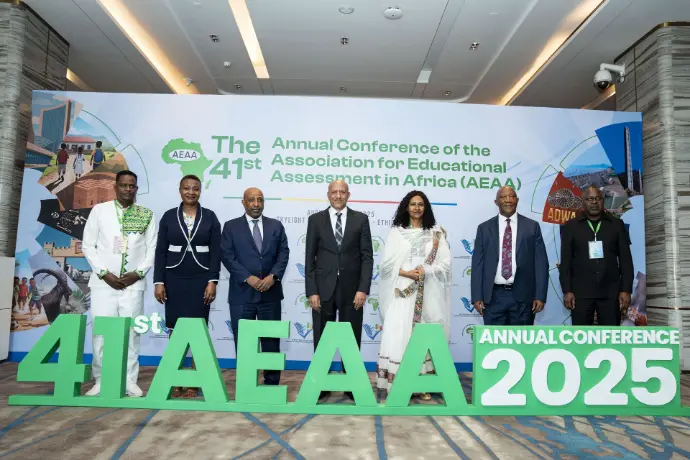
Pictures of opening ceremony by High Officials (From Left: Dr. Eshetu kebede, CEO, NEAES-Ethiopia, )
Mobile Clinics standby and instructions given by LOC leaders
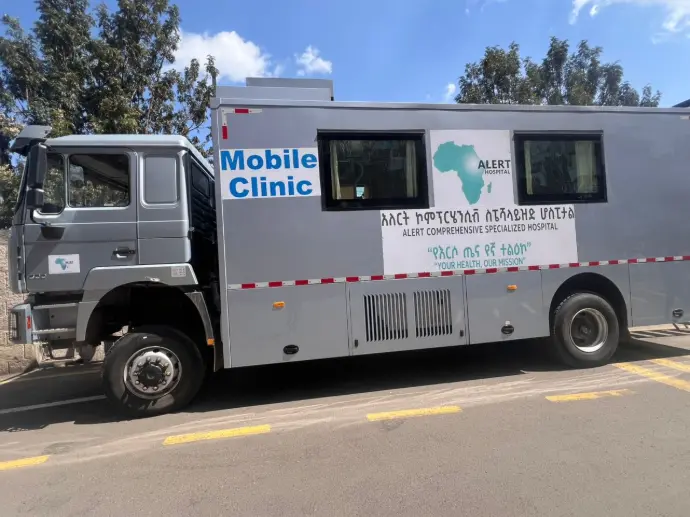
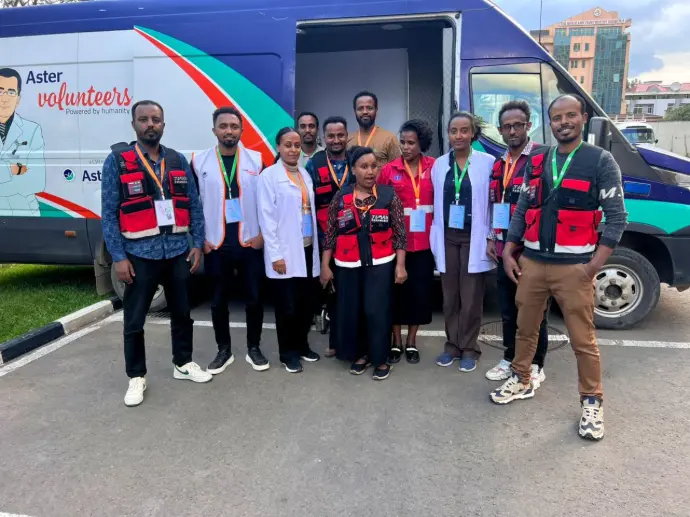
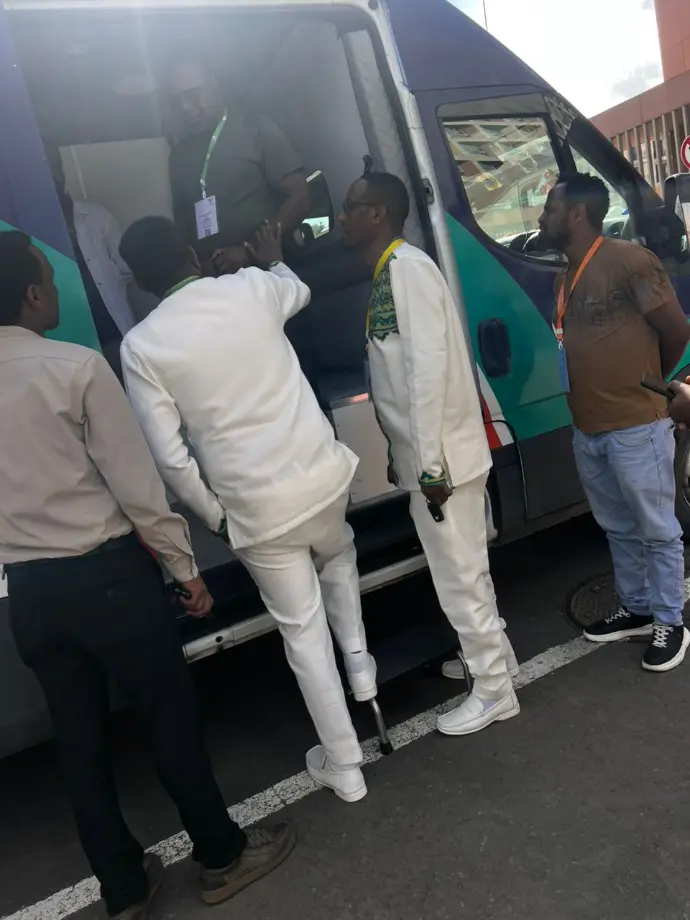
Participants are welcoming to the main conference room with natural flowers
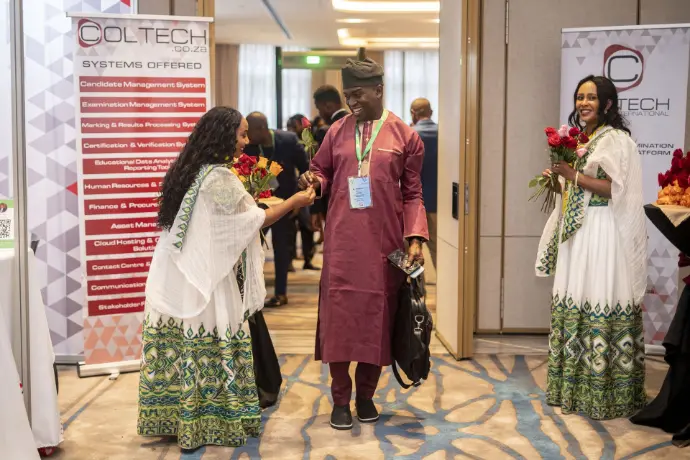
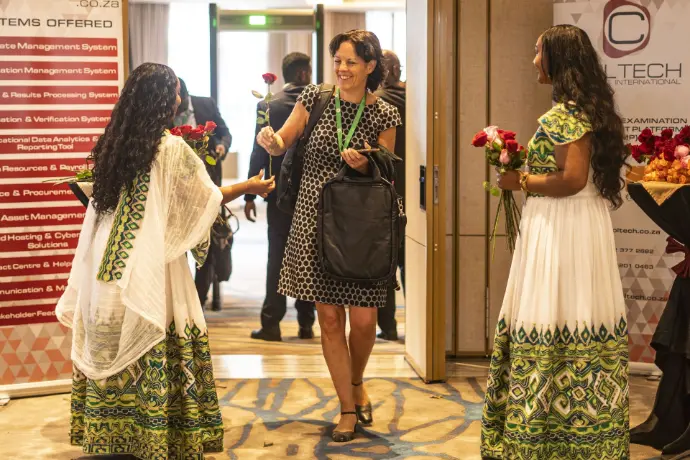
Entertaining Music for participants before the 41st AEAA conference program opening
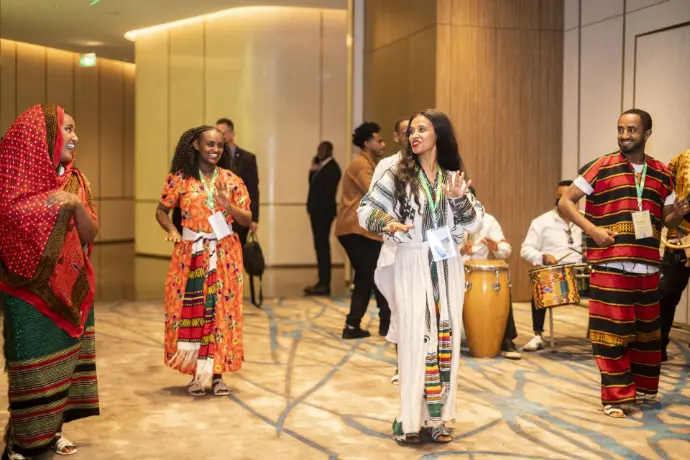
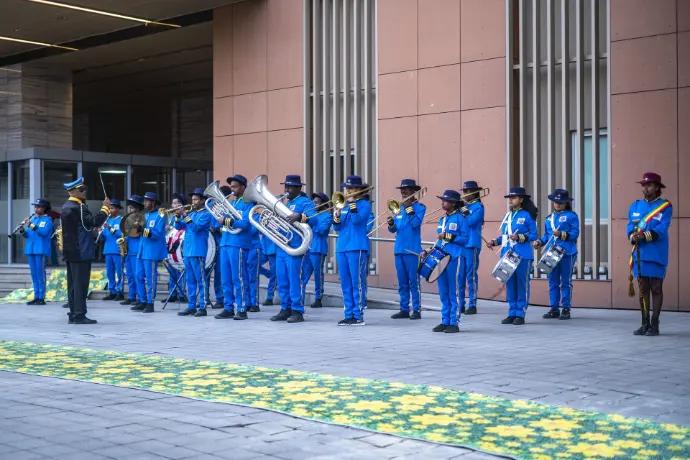
Conference Highlights: A Day of Transformative Declarations
The day began with the Ethiopian and AU Anthems, followed by a moving performance from a student choir.
The students' performance underscored the core message of the conference: that modernizing teaching, learning,
and assessment is key to fixing the quality of education in Africa.
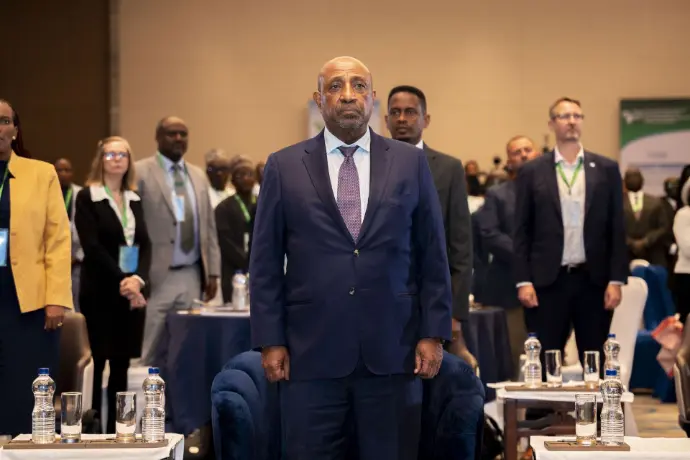
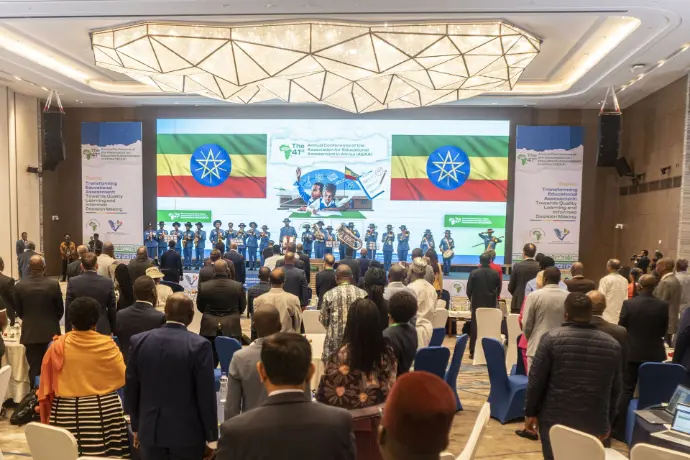
Official Opening & Opening Speeches
Welcome remarks: HE. Prof Berehanu Nega, Minister of MoE, Ethiopia
The conference was officially opened by HE Deputy Prime Minister of the Federal Democratic Republic of Ethiopia, Ato Temesgen Tiruneh. In his powerful address, he declared that "Africa is rising, but rising is not enough, we must lead." He emphasized that assessment serves as a vital "compass which shows us where we are" on this journey.
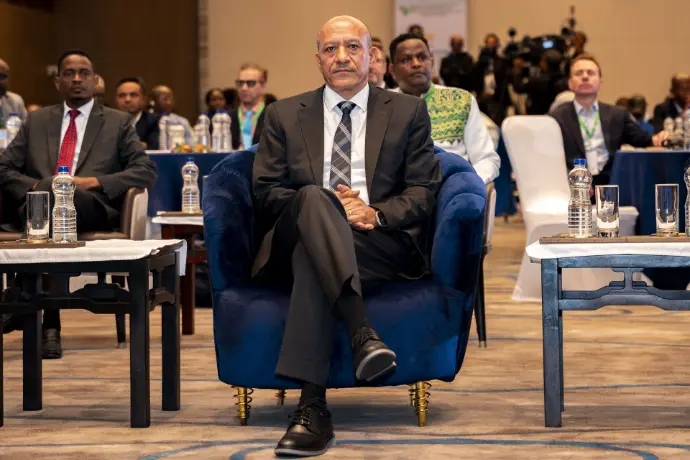
Welcome remarks: HE. Prof Berehanu Nega, Minister of MoE, Ethiopia
The Minister of Ministry of Education, HE Professor Birhanu Nega, extended a warm welcome to all participants. He spoke of Ethiopia's ongoing educational reforms, highlighting the country's move towards a new curriculum and the strategic use of assessment data to inform policy and drive continuous improvement.
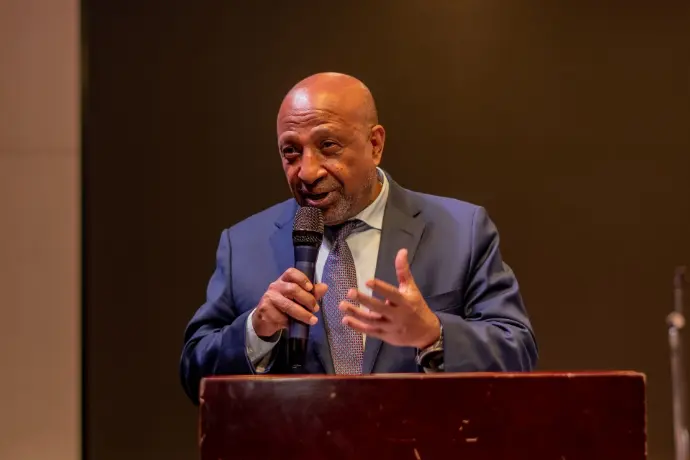
Remarks by: HE Dr. Eshetu Kebede
The CEO of the Educational Assessment and Examinations Service (EAES) and AEAA Vice President, Dr. Eshetu Kebede, offered a heartfelt welcome, affirming that assessment should be seen not as a barrier but as an "opportunity to measure students’ learning." He noted that the conference will feature presentations from over 30 countries, fostering debate, discussion, and the sharing of experiences.
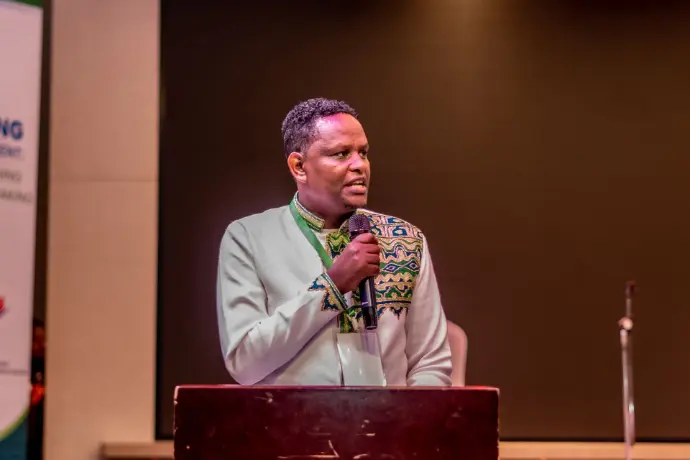
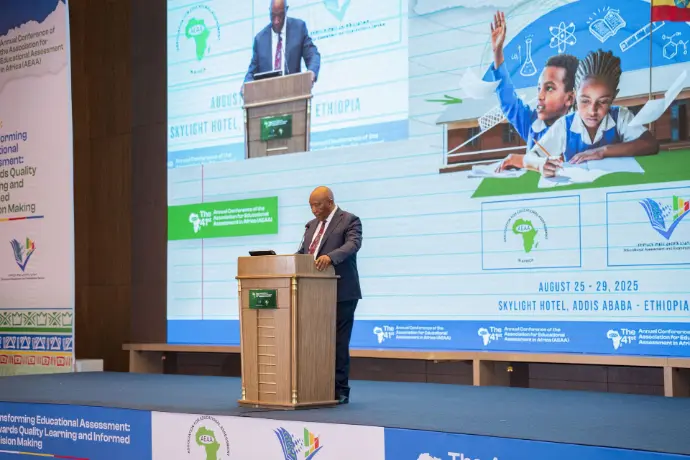
Remarks by: Dr. Mafu S. Rakometsi
Dr. Mafu S. Rakometsi, the current President of the AEAA, expressed his delight at being in "flame Ethiopia, a place of ancient culture." He called on the conference to use the lens of "reparation" to make assessments fairer and more accurate for those being assessed, linking the work of the AEAA to the broader African Union agenda of justice and prosperity.
Dr. Sophia Ashipala of the AU also highlighted the AU's active work on assessment systems to deliver quality and equity across the continent.
Ashipala of the AU also highlighted the AU's active work on assessment systems to deliver quality and equity across the continent.
Dr. Michael Chilala concluded the welcoming remarks by stressing the need for Africa to shape its own effective assessment policies, stating that "Assessment is not an assumption but it is true measurement."
Dr. Michael Chilala clinched the welcoming remarks by stressing the need for Africa to shape its own effective assessment policies, stating that "Assessment is not an assumption but it is true measurement."
Cake Cutting ceremony for the opening
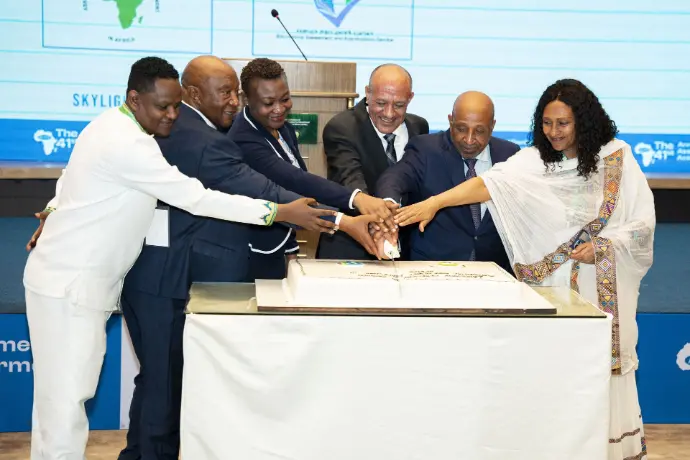
Conference started in earnest with Dr. Dawit delivering the first keynote addresses.
Keynote Address: Dr. Dawit Mekonen
Title: Transforming Education for Africa's Future
Dr. Dawit Mekonnen delivered the keynote address, titled "Transforming educational assessment towards quality learning and informed decision making." He emphasized that Africa must transform its education system to secure its future.
The Role of Global Partners
The discussions continued with a presentation by Mr. Abdul Hai Sofizada of the World Bank, who detailed the organization's contributions to strengthening educational assessment systems. He provided an overview of the World Bank's learning assessment portfolio, regional initiatives, and highlighted a case study on Ethiopia.
The presentations were followed by a lively question and answer session led by Dr. Michael Chilala.
The afternoon continued with seven parallel sessions, where over 35 research papers were presented and discussed, covering a wide range of topics related to the conference theme.
The parallel sessions explored innovative classroom practices, with a study from Zambia showcasing how rural schools are using oral storytelling and community-judged tasks for holistic assessment. Preliminary findings from an Ethiopian study on early childhood education also revealed significant urban-rural differences in teacher practices and school readiness.
Some sample pictures of the parallel Sessions (moderators, facilitators & presenters)
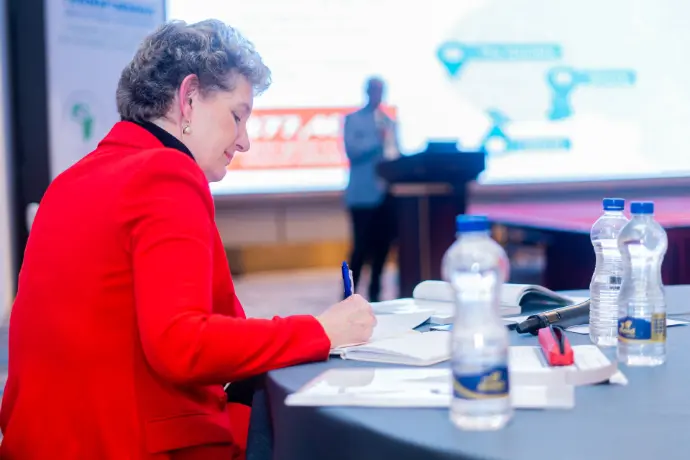
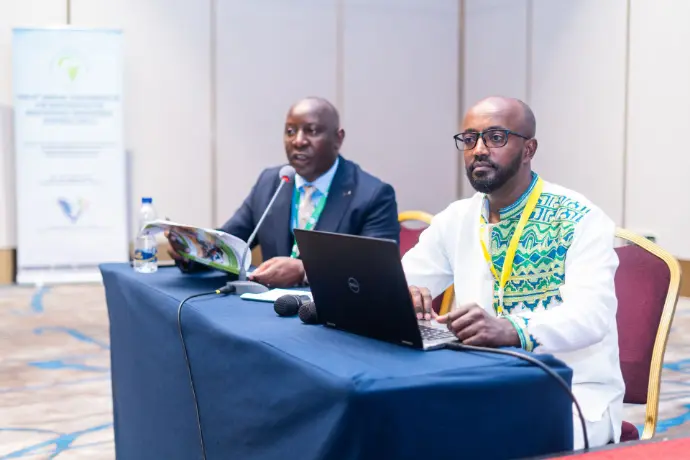
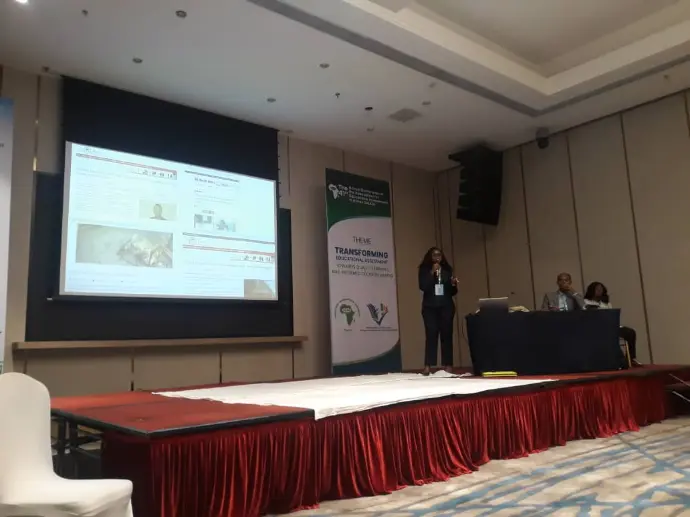
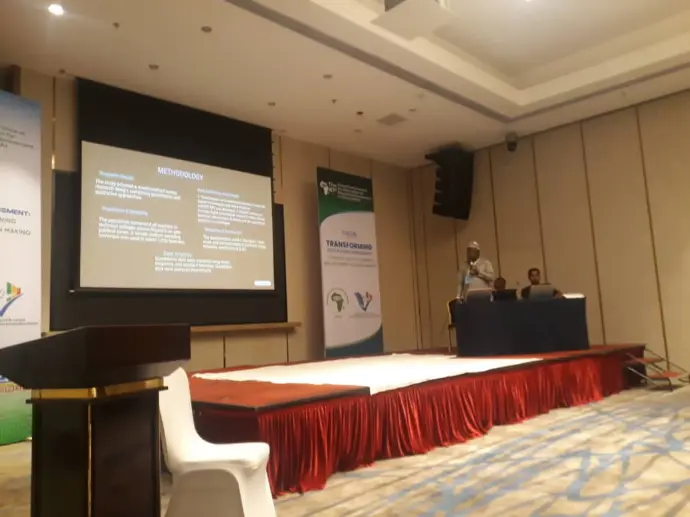
Parallel session presentations
